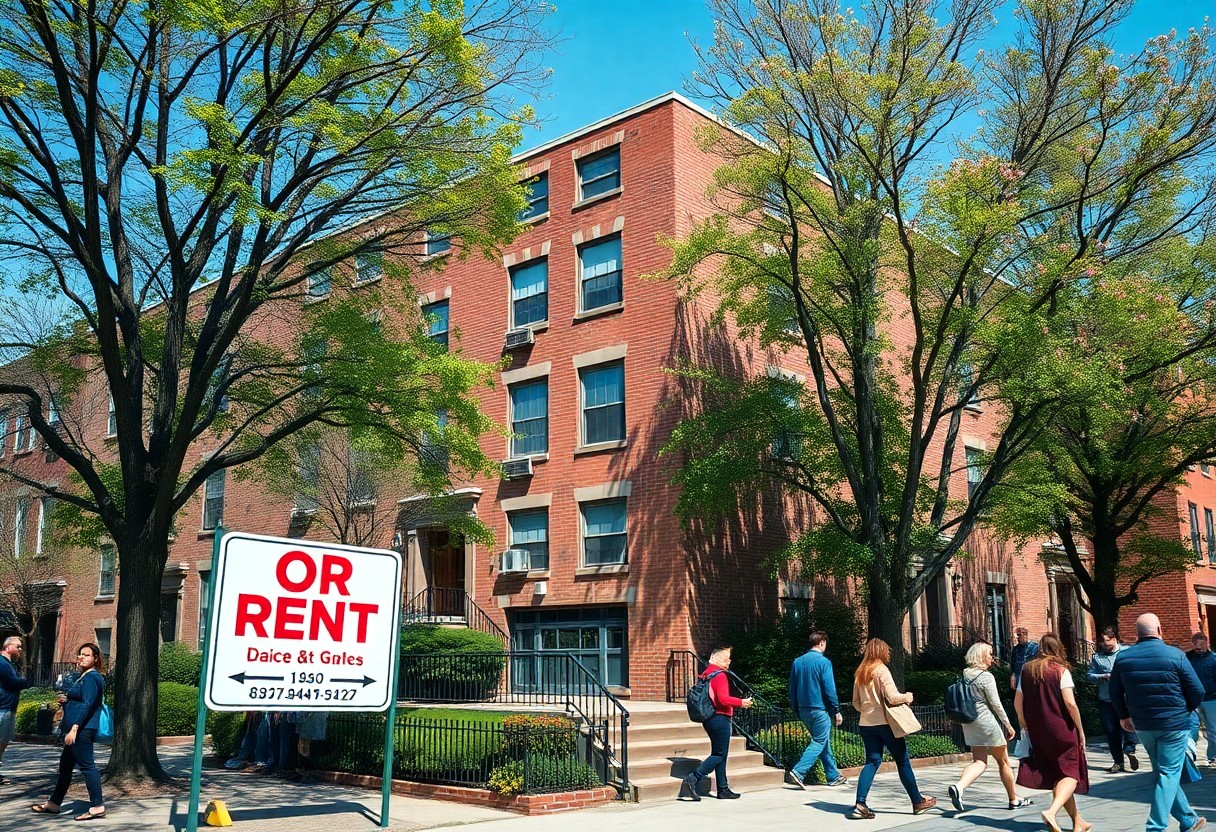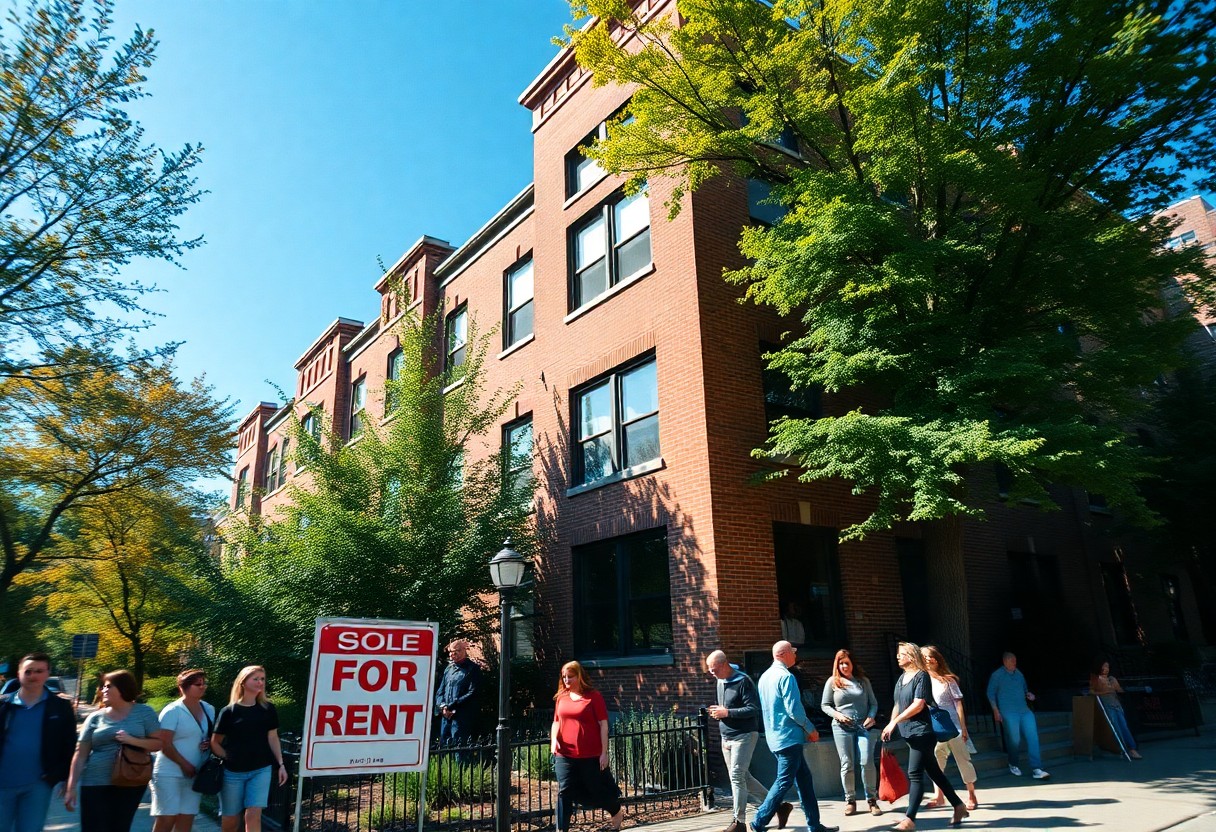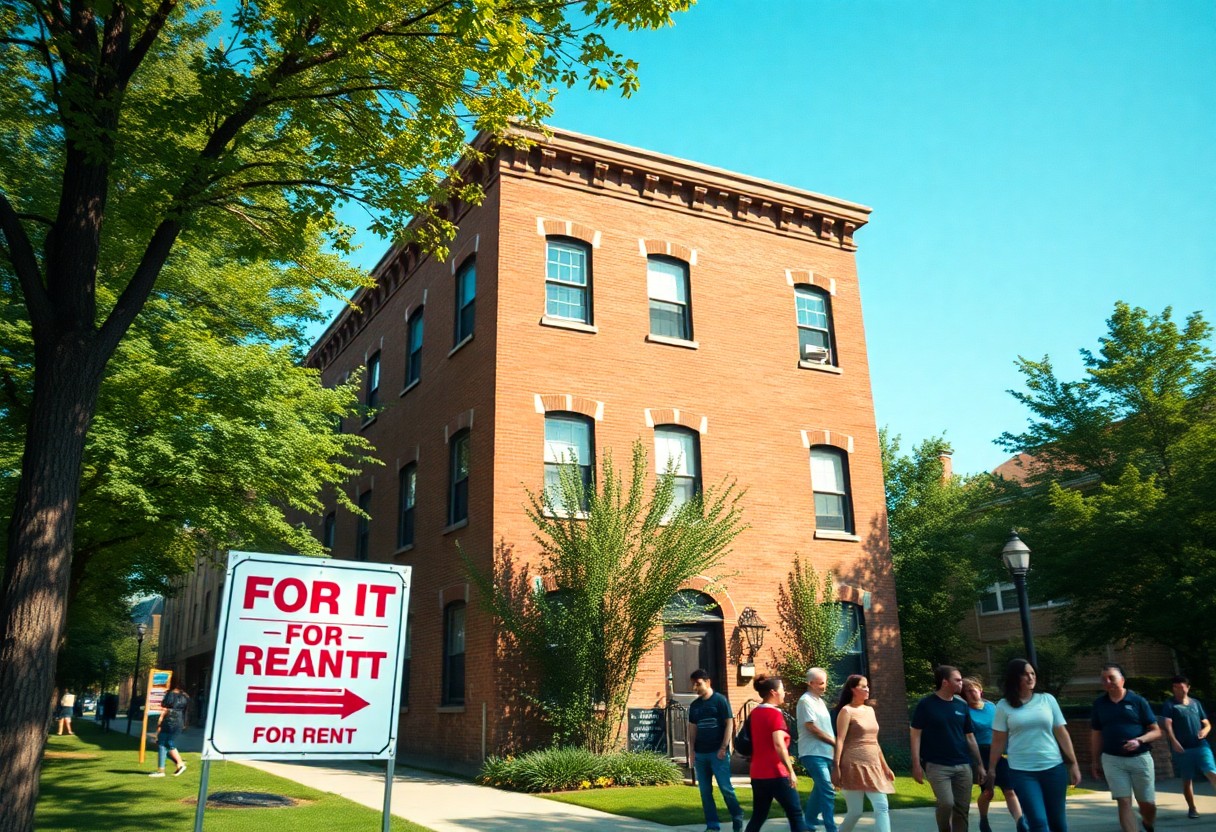Just like any investment, plunging into the rental property market in Ann Arbor requires a clear understanding of the local landscape and strategic planning. In this comprehensive guide, you will explore necessary steps and tips designed to empower you in making informed decisions, whether you’re a first-time investor or looking to expand your portfolio. From choosing the right neighborhoods to managing your properties effectively, this guide will equip you with the knowledge and confidence needed to succeed in the Ann Arbor rental market.
Key Takeaways:
- Research the local rental market thoroughly to understand property values, rental rates, and demand in Ann Arbor.
- Evaluate financing options and calculate potential returns on investment (ROI) to ensure your rental property aligns with your financial goals.
- Stay informed about landlord-tenant laws and local regulations to maintain compliance and protect your investment.

Types of Rental Properties
Your investment options in Ann Arbor can vary widely, depending on your budget, goals, and market understanding. Understanding the types of rental properties available will help you tailor your investment strategy to meet your objectives. Here’s a quick breakdown of the primary types of rental properties you might consider:
| Property Type | Description |
| Single-Family Homes | Standalone houses typically rented to one family. |
| Multi-Family Units | Properties with multiple rental units, such as duplexes or apartment buildings. |
| Vacation Rentals | Properties rented short-term to travelers and tourists. |
| Commercial Properties | Buildings used for business purposes, such as retail or office spaces. |
| Student Housing | Properties tailored for students, often near universities. |
Recognizing the type of rental property that best aligns with your investment strategy is important for maximizing your returns and ensuring sustainability in your efforts.
Single-Family Homes
Now that you have an overview, let’s dive deeper into single-family homes. These properties are usually standalone houses and are commonly favored by families looking for longer-term rentals. Investing in single-family homes can be particularly advantageous if you’re interested in stability and easier management, as the turnover rates tend to be lower compared to multi-family units. Furthermore, these homes often appreciate in value over time, providing potential long-term wealth growth.
While single-family homes may require a larger initial investment compared to other rental types, they also tend to attract quality tenants who seek a peaceful living environment. As you evaluate this option, consider the neighborhood dynamics, school districts, and proximity to amenities, which can significantly impact your rental success.
Multi-Family Units
Any serious investor should explore multi-family units as an attractive option in Ann Arbor. These properties consist of multiple rental units—like duplexes, triplexes, and apartment buildings—and can provide you with multiple income streams from one property. This diversification helps mitigate risks, as the failure of one tenant to pay rent doesn’t entirely disrupt your cash flow.
Multi-family units also tend to have higher overall rental yields compared to single-family homes. Moreover, the opportunity for economies of scale can often lead to reduced maintenance costs and increased management efficiency. You’ll find that multi-family properties are particularly appealing for investors who wish to grow their portfolio more quickly.
MultiFamily units can also benefit from increased demand, especially in a college town like Ann Arbor, where rental properties are often in high demand due to the large student population. This trend adds an extra layer of potential profitability while allowing you to capitalize on the area’s growth.1. Research Ann Arbor’s rental market trends and neighborhoods.
2. Set your investment budget and financing options clearly.
3. Identify and analyze potential rental properties thoroughly.
4. Conduct property inspections and assess repair costs carefully.
5. Understand local rental laws and tenant responsibilities.
6. Manage your property effectively or hire professional management.

Step-by-Step Guide to Investing
One of the most effective ways to approach rental property investment is by breaking down the process into manageable steps. This guide will walk you through important phases, covering everything from market research to financing your investment. By doing so, you will be better equipped to make informed decisions that can lead to successful property ownership and increased long-term profits.
| Step | Description |
|---|---|
| 1. Research the Market | Gain a deep understanding of Ann Arbor’s rental market trends, demographics, and neighborhoods. |
| 2. Create a Business Plan | Outline your investment goals, targets, and strategies for managing your properties. |
| 3. Secure Financing | Explore different financing options available to you and prepare for obtaining funds. |
| 4. Find Properties | Identify potential properties that align with your investment strategy. |
| 5. Conduct Due Diligence | Inspect properties and review financial statements to ensure viable investments. |
| 6. Make Offers | Submit competitive offers based on your research and due diligence. |
| 7. Close the Deal | Finalize the transaction with necessary paperwork and legal considerations. |
| 8. Manage Your Property | Implement your management plan and monitor your property’s performance. |
Researching the Market
Clearly, understanding the rental market in Ann Arbor is the first step toward success as an investor. Dive deep into local trends, such as average rental prices, vacancy rates, and which neighborhoods are gaining popularity. This research will provide you with a comprehensive understanding of where to invest your money effectively and which areas may present more risks. Utilize online resources, attend local real estate meetups, and consult with professionals who can offer insights into market dynamics.
Moreover, pay close attention to demographic changes and developments in Ann Arbor. As the home of the University of Michigan, the city experiences fluctuations in demand based on student populations and local employment opportunities. By staying in touch with these trends, you can identify times to enter or exit particular segments of the rental market, ensuring your investment strategy remains relevant and profitable.
Financing Your Investment
On your journey to investing in rental properties, securing adequate financing is important. Begin by assessing your financial situation, including your credit score, savings, and investment goals. This evaluation will guide you in determining the type of financing best suited for you, whether it be a traditional mortgage, a home equity line of credit, or private loans. Carefully consider your options and shop around for the best terms to ensure you have the flexibility needed for a successful investment.
A strategic approach to financing is to create a budget that includes not just the purchase price but also closing costs, renovation expenses, and ongoing operating costs. Proper planning will help you avoid pitfalls that can arise from unforeseen expenses. Engaging with a financial advisor or a mortgage broker can further clarify your options and help you find the best resources to fund your investment effectively.
Key Factors to Consider
Once again, when it comes to investing in rental properties in Ann Arbor, it is vital that you consider a multitude of key factors to ensure a successful venture. Evaluating these components will help you make more informed decisions, ultimately leading to a better return on your investment. Focus on the following aspects:
- Location and Neighborhood
- Property Management
- Market Trends
- Financing Options
- Local Laws and Regulations
This thorough assessment will help to streamline the investment process and elevate your chances of achieving your financial goals.
Location and Neighborhood
Neighborhood plays a significant role in the success of your rental property investment. Ann Arbor is known for its vibrant communities, each offering unique features and amenities that cater to different demographics. Housing in proximity to the University of Michigan tends to attract a steady influx of students, while other areas may be more appealing to families or young professionals. Pay close attention to community demographics, schools, parks, and local businesses, as these factors can significantly impact your property’s desirability.
In addition to the amenities, you should evaluate the overall safety and cleanliness of the neighborhood. An area that is well-maintained and safe fosters a higher quality of living for your tenants, leading to longer lease agreements and fewer vacancies. Stay informed about upcoming developments or changes in the area, such as new transportation options or commercial establishments, as these could enhance the neighborhood’s value over time. This will play a vital role in determining your rental rates, tenant satisfaction, and overall investment success.
Property Management
Neighborhood consistency in property management is paramount in preserving your investment’s value and ensuring a seamless tenant experience. As a property owner, you have the option to manage the rental yourself or hire a property management company. If you choose to manage it, ensure you have the time and expertise required to keep the property maintained, respond to tenant inquiries, and handle any legal concerns. Conversely, hiring a property management firm can save you time and provide a level of professional oversight that ensures your investment runs smoothly.
Consider the extent of services offered by property management companies, as well as their fees, communication style, and reputation within the community. A good property manager can help you set competitive rental rates, market your property effectively, screen potential tenants, and handle maintenance requests. Weighing these options carefully will help you decide the best course of action for the management of your rental property, ensuring it remains a profitable venture for years to come.
Tips for First-Time Investors
Not every rental property investment will lead to instant success; it requires thorough research and planning. If you’re considering plunging into the rental market, here are some valuable tips to guide you along your journey:
- Start by analyzing local market trends and property values.
- Consider working with a real estate agent who knows the Ann Arbor area well.
- Evaluate the financial aspects, including potential return on investment and property management costs.
- Look into property inspections to avoid unexpected repair costs.
- Connect with other investors for insights and experiences.
Recognizing the importance of these steps can set you up for a successful investment experience. For more detailed insights, check out How to Invest in Ann Arbor Rental Properties.
Building a Reliable Team
Team building is important for your success in rental property investment. You’ll need a mix of professionals including a trustworthy real estate agent, an experienced property manager, and perhaps even a contractor for maintenance and renovations. Each member of your team plays a vital role in ensuring that your investment is well-managed and profitable.
Establishing strong communication channels with your team can help streamline processes and make your investment journey smoother. Don’t hesitate to seek advice or clarify doubts with team members as they can provide insights that you might not have considered.
Understanding Rental Laws
Laws vary significantly from one area to another, and it’s important for you to have a comprehensive understanding of rental regulations in Ann Arbor. Familiarizing yourself with tenant rights, lease agreements, and eviction processes is fundamental to protecting your investment and avoiding potential legal pitfalls.
A solid grasp of local rental laws will not only help you maintain compliance but will also establish you as a reputable landlord in the eyes of your tenants. You might explore resources such as local government websites or consult with legal professionals who specialize in real estate to ensure that you’re following the necessary guidelines.
Pros and Cons of Rental Investment
Many investors are drawn to rental properties for their potential to generate passive income, but it’s crucial to weigh the benefits and drawbacks before diving in. Understanding the pros and cons can help you make informed decisions that align with your financial goals. Below is a table that outlines key advantages and disadvantages you might encounter in rental investment:
| Pros | Cons |
|---|---|
| Steady Income Stream | Vacancies can lead to lost income |
| Property Value Appreciation | Market fluctuations may decrease value |
| Tax Benefits | Ongoing maintenance and repair costs |
| Building Equity Over Time | Initial investment can be substantial |
| Control Over Investment | Time-consuming property management |
| Diverse Investment Portfolio | Potential for tenant issues |
| You can leverage financing | Legal responsibilities as a landlord |
| Possibility for rental increases | Neighborhood changes may impact rent |
| Generates potential future retirement income | Requires ongoing knowledge of real estate market |
| Opportunity for creative property improvements | Emotional stress during tenant turnover |
If you are considering investing in rental properties, understanding the advantages may help you feel more confident in your decision. The most significant advantage is the potential for a steady income stream generated from rent payments. This income can provide you with financial security and enable you to cover your mortgage and other expenses. In addition, rental properties often appreciate over time, which means you could see a significant return on your initial investment. Coupled with tax benefits and the ability to leverage financing, rental investments can be a powerful tool in growing your wealth.
Potential Risks and Drawbacks
Little do many new investors realize, rental property investments come with their share of risks and challenges. You could face vacancies that lead to lost rental income or market fluctuations that diminish your property’s value. Additionally, ongoing maintenance and repair costs can add up quickly, eating into your profits. It’s important to prepare for tenant-related issues as well, such as late payments or property damage, which can create additional stress and financial burden.
Drawbacks of investing in rental properties also include the significant time commitment required for property management. You’ll need to stay informed about market conditions, zoning laws, and local regulations as a responsible landlord. This level of involvement may require skills in negotiation and conflict resolution, particularly when dealing with tenant disputes or property management issues. Ensuring you are prepared for these potential challenges will help you navigate the complexities of rental property ownership more effectively. For a detailed overview on how to make smart investments in Ann Arbor, consider referring to the Ultimate Ann Arbor Real Estate Investing Guide for 2025.
Best Practices for Managing Rental Properties
To effectively manage your rental properties in Ann Arbor, you need to establish a systematic approach that prioritizes tenant satisfaction and property maintenance. This includes not only setting the right rental rates and screening tenants properly but also maintaining open communication with your renters to address their needs or concerns swiftly. By developing a strategic management plan, you can foster a positive living environment that ultimately leads to longer tenancy and minimizes vacancies.
Tenant Screening
Managing tenant screening requires thoroughness and diligence. It’s crucial to implement a standardized process for evaluating potential renters, which should include checking credit histories, verifying employment, and contacting previous landlords for references. By conducting detailed background checks, you can mitigate risks associated with unpaid rent or property damage, ensuring that your properties are occupied by reliable tenants who adhere to lease agreements.
Maintenance and Repairs
You must prioritize maintenance and repairs to keep your properties in excellent condition, which helps retain tenants and enhances the property’s value. Establish a reliable schedule for routine inspections and encourage tenants to report issues promptly. This proactive approach not only prevents minor issues from escalating into costly repairs but also demonstrates your commitment to maintaining a safe and comfortable living space for your renters.
Repairs should be addressed quickly and efficiently to maintain tenant satisfaction and reduce the likelihood of complaints. You should establish relationships with trustworthy contractors who can manage both emergency repairs and planned maintenance. Doing so can help you respond to issues swiftly, ensuring that your tenants feel valued and that their living conditions remain optimal. By managing these tasks effectively, you can set yourself apart from other landlords and cultivate a reputation for being a responsive property owner.
Final Words
So, as you initiate on your journey to invest in rental properties in Ann Arbor, it’s important to take a well-rounded approach. Equip yourself with knowledge about the local market, property management, and financing options. Research the neighborhoods that interest you, analyze trends, and identify properties that align with your investment goals. By understanding the unique characteristics and economic factors affecting Ann Arbor, you can make better-informed decisions that enhance your chances of success.
Additionally, leverage the resources available to you, including networking with local real estate professionals and joining investment groups. Engaging with other investors can provide insightful perspectives and valuable experiences that benefit your investment strategy. As you move forward, focus on building a solid plan and staying adaptable in an ever-changing market. Your investment in rental properties can pave the way for financial independence and long-term wealth, so commit to the journey with diligence and purpose.
Q: What factors should I consider before investing in rental properties in Ann Arbor?
A: Before investing in rental properties in Ann Arbor, it’s important to consider several factors. First, research the local real estate market to understand price trends and demand for rental units. Look at the neighborhood’s amenities, proximity to schools, public transportation, and employment opportunities, as these can significantly affect property value and rental income. Additionally, assess property management options, as effective management can impact your investment’s profitability. Lastly, familiarize yourself with local regulations and zoning laws governing rental properties, as they can influence your investment strategy.
Q: How do I determine the right price for my rental property in Ann Arbor?
A: To determine the right price for your rental property, start by conducting a comparative market analysis (CMA). This involves looking at similar rental properties in the area, known as comparables, and analyzing their rental rates. Assess factors such as property size, amenities, and location to establish a competitive price. Additionally, consider using online rental pricing tools and platforms that aggregate rental data from the area. It can also be beneficial to consult with a local real estate agent who specializes in rental properties to gain insights on market trends and pricing strategies.
Q: What financing options are available for investing in rental properties in Ann Arbor?
A: When investing in rental properties in Ann Arbor, there are several financing options to consider. Traditional mortgages are a common choice, where lenders offer loans based on your creditworthiness and down payment. Alternatively, you might explore FHA loans which cater to first-time investors and require a lower down payment. Other options include hard money loans, which offer quicker funding but often come with higher interest rates. Additionally, you could consider partnerships or real estate investment groups for joint financing efforts, allowing for shared responsibilities and potential risk mitigation. Always evaluate the costs and benefits of each option to find the best fit for your investment strategy.



